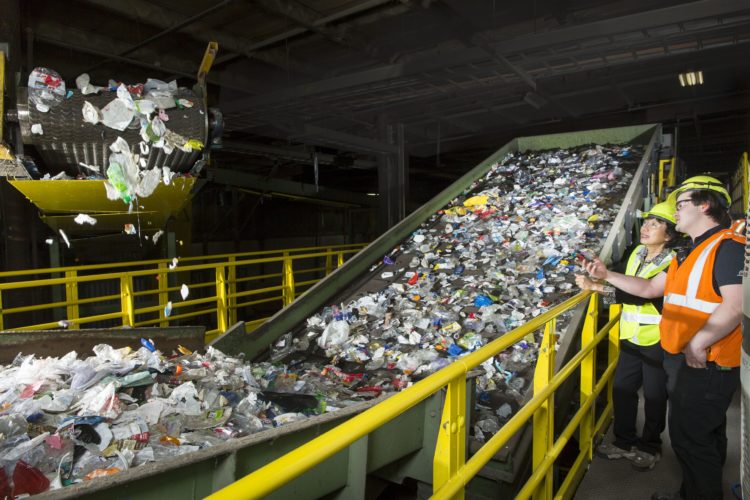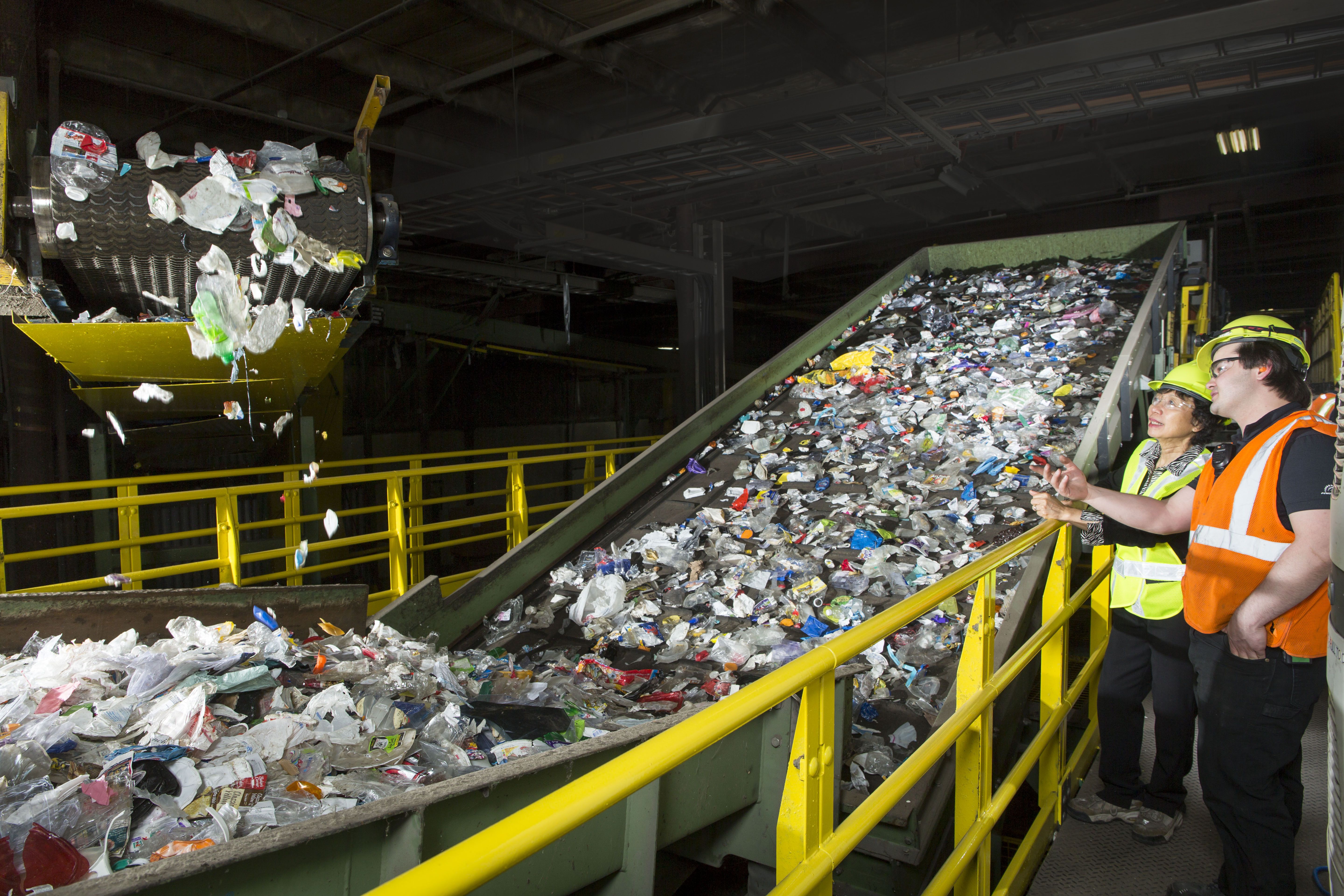Canadian plastics recycling veterans and entrepreneurs Tony Moucachen and Emmie Leung have combined the market presence of their three extended plastics processing and recycling companies, Merlin Plastics Group, ReVital Polymers, and Emterra Group, to launch North America’s largest plastics recycling consortium—Circular Polymers Group (CPG).
These companies currently operate 38 multi-materials handling and recycling facilities in British Columbia, Alberta, Saskatchewan, Manitoba, and Ontario, as well as in Oregon, California, and Michigan in the United States. In 2017, this group collected and recycled well over 136 million kilograms of plastics from residential curbside recycling systems, beverage container deposit-return systems and the Industrial, Commercial, and Institutional sectors across Canada and the USA.
A number of organizations are pushing for the elimination or vast reduction of plastic waste globally and in Canada. Reducing plastic waste would divert plastic pollution from both freshwater and salt water bodies. Canada voiced its support for a Blue Charter in April. Despite cities banning plastic bags and bottles, a recent study from Quebec found that banning single-use plastic bags could increase total environmental plastic pollution.
“While each of our companies will continue to do business individually, we’ll be working synergistically to offer our customers the combined knowledge of 75 years of recycling expertise, state-of-the art technology, and solutions-oriented, strategic thinking,” said Moucachen. “Circular Polymers Group is a consortium company that is truly greater than the sum of its parts.”
ReVital Polymers from Emterra Group on Vimeo.
This recycling activity is backed by $300 million of installed capital and supports 1,500 jobs that drive a growing circular economy for plastics.
CPG believes that with its 2018 presidency of the G7, Canada has the opportunity to lead global change on how plastics are valued, used, recovered, reused and recycled.
“As a starter, the Canadian government can assist developing countries in tailoring regulatory approaches that require consumer product companies to take responsibility for recycling their waste plastic packaging and products,” said Leung. “It can assist in the transfer of Canadian technologies to collect, sort, and recycle plastics. Implemented in developing countries, this combination of policies and best practice will dramatically reduce the eight million tonnes of plastics discharged to the world’s oceans every year.”
Under Extended Producer Responsibility (EPR), producers such as consumer product companies, whose products and packaging end up as waste, must ensure recycling of those wastes. In turn, the demand for more effective recycling technology drives the development of innovative plastics sorting, improves traditional mechanical processing, and supports emerging technologies like chemical recycling that converts plastic resins to original molecules. As a result, in provinces like British Columbia, a wide range of plastics are collected and recycled back into food and beverage packaging, as well as non-food packaging, consumer goods, and durable products such as automotive parts.

“The bulk of the plastics entering the world’s oceans comes from a handful of countries, such as Indonesia, the Philippines, Vietnam, Sri Lanka, Egypt, Thailand and Malaysia,” said Leung. “By adapting the regulatory model for EPR that is emerging in Canada, these countries could aggressively address the ocean plastic pollution problem, reduce greenhouse gases associated with plastic production and disposal, and drive local economic development.”









